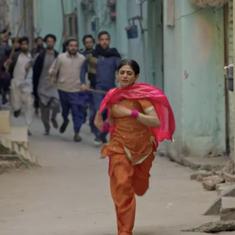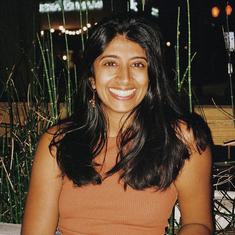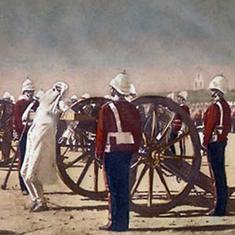The Big Story: Repeating half-truths
In his speech in Mangaluru on Saturday, Prime Minister Narendra Modi repeated a claim that has been thoroughly debunked. At a public meeting in this communally volatile area, Modi repeated the version that at least two dozen Bharatiya Janata Party workers have been killed in the state in the last five years of the Congress rule.
The origins of this theory is a letter written by Udupi-Chickmagaluru MP Shobha Karandlaje to Union Home Minister Rajnath Singh on July 8, 2017. In the letter, she claimed that 23 Hindu activists have been murdered by “jihadi elements” and that a National Investigation Agency probe should be launched into each of them to bring out the conspiracy.
While Karandlaje is known for her communal statements, something that she has built her career on, it was startling to see that a prime minister would repeat something that has been totally discredited .
In late February and early March, Scroll.in travelled across Karnataka to meet the families of each of the names mentioned on Karandlaje’s list. We found that of the 23 cases, only 10 had connection to Muslim organisations like the Popular Front of India. The rest were murders committed due to personal enmity that involved political rivalry, real estate feud and romantic affairs. One on the list was alive, two committed suicide and two were allegedly killed by their own sisters.
All of this has been pointed out enough number of times by now since Scroll.in published its findings, but the claim persists. The version that 23 Hindus activists were brutally killed by Muslim organisations in Karnataka has been consistently used by Sangh Parivar organisations to whip up emotions in the coastal districts. For the prime minister to once again allude and invoke this list, when not all on this list were even BJP workers, it is deeply problematic.
Unlike small-time politicians who ignore the truth for propaganda, it is unbecoming for Modi, who is the prime minister for the entire country and not just a particular section of the population, to take up such blatantly untrue statements on a campaign trail.
On Sunday, Karandlaje tweeted that on July 19 last year, she had sent a revised letter to the Union home minister, bringing down the tally of 23 to 20 and moving the person alive to the injured list.
The counter question that is put forward when one points out that not all on the list were killed by members of Muslim organisations is if 20 murders are in any way less and would the media not take it seriously if the numbers were not accurate.
The number of killings was never the problem. Twenty killings are not a small matter at all. In fact, even a single murder, especially if it is an organised crime, is a challenge to the law and order machinery and for the larger peace of the society. The real problem is the ideological narrative that is built on false claims such as these. To paint all murders of Hindu activists as “jihadi murders” when in reality it is not so is a brazen attempt to alienate the Muslim community and turn the Hindus against them. It is an attempt to create fear among the majority community and derive political mileage out of it.
When a prime minister with huge popularity repeats these claims, it attains a false legitimacy that is inimical to social peace. Though Modi did not mention that the “two dozen” activists were killed by “jihadi elements”, that he was alluding to the claims in the letter was clear. The fact that Karandlaje herself had to revise the letter shows the flimsy grounds the narrative was built on.
Modi should realise that he has larger responsibility than just winning elections.
The Big Scroll
In this two-part investigation, Sruthisagar Yamunan meets the families of all 23 names claimed by the BJP to be victims of “jihadi killings”.
Punditry
- In the Indian Express, Vikram S Mehta writes on why the government must not ask public sector outfits to bear burden of high oil price regime.
- Simultaneous polls will prevent citizens from keeping their elected representatives on permanent notice, says Neera Chandhoke in The Hindu.
- Regulatory overkill is creating an atmosphere of suspicion and hindering the prospects of wealth creation, argues Ashima Goyal in BusinessLine.
Giggles
MAY election in Karnataka! @mail_today cartoon #KarnatakaElections pic.twitter.com/CLGrMS7PTn
— Satish Acharya (@satishacharya) May 7, 2018
Don’t miss
‘Pray in mosques’: Why Gurugram’s Muslims might not be able to follow the Haryana CM’s advice.
“Only a few mosques in Gurugram can accommodate more than 300 persons, said Hafiz Junaid, 30, who organises weekly prayers in two open spaces in the satellite town. “Only Muslims who work in areas close to the mosques consider it feasible to pray there on Fridays,” said Junaid, a migrant from Palwal in Haryana. “Those who work far away and do not have any vehicle of their own cannot afford it [to travel to mosques].”










